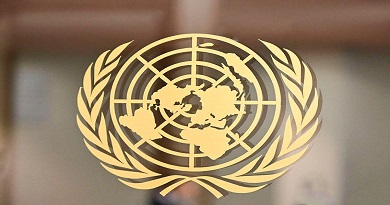
Humanity barely has two years to save the world and reverse the current course, a warning from the United Nations, which today recognizes the dangers of the climate crisis threatening the planet.
In his recent comments, Simon Steele, Executive Secretary of the United Nations Framework Convention on Climate Change, called for radical changes to reduce emissions and make financial decisions that prioritize the climate.
“Who has exactly two years to save the world? “The answer is every single person on the planet,” Steele said at an event in London where he echoed the agency’s warnings after 2023 amassed some of the worst statistics on the planet.
“More and more people want climate action across communities and the political spectrum, largely because they are feeling the impacts of the climate crisis in their daily lives and their household budgets,” he acknowledged.
Steele warned that if emissions continue at the current rate, they will further entrench huge inequalities between the world's richest and poorest countries and communities.
The latest Financing for Sustainable Development 2024 report estimates that $4.2 trillion is needed annually to close the development financing gap, a figure much higher than the $2.5 trillion needed before the Covid pandemic.
The United Nations recognizes that this context is caused, in large part, by growing geopolitical tensions, climate disasters, and a global crisis in the cost of living that affects billions of people and harms progress in health care, education and other development goals.
According to the analysis, debt service in least developed countries will reach $40 billion annually between 2023 and 2025, more than 50 percent of the $26 billion in 2022.
In this context, stronger and more frequent climate-related disasters account for more than half of the increase in debt in vulnerable countries.
Presenting the study this week, Deputy Secretary-General of the United Nations, Amina Mohammed, called for urgent action to save the sustainable development goals, warning of unfortunate deviations from the set goals.
The representative considered that increasing investment and reforming the international financial system are necessary given the risk that 600 million people will live in extreme poverty in 2030 if the current pace continues.
About 40 percent of the world's population – about 3.3 billion people – live in countries whose governments now spend more on interest payments than on education or health.
“Average growth rates have declined steadily over the past 25 years, from more than six percent before the global financial crisis more than 15 years ago to about four percent today,” he said.

“Award-winning alcohol trailblazer. Hipster-friendly internetaholic. Twitter ninja. Infuriatingly humble beer lover. Pop culture nerd.”
